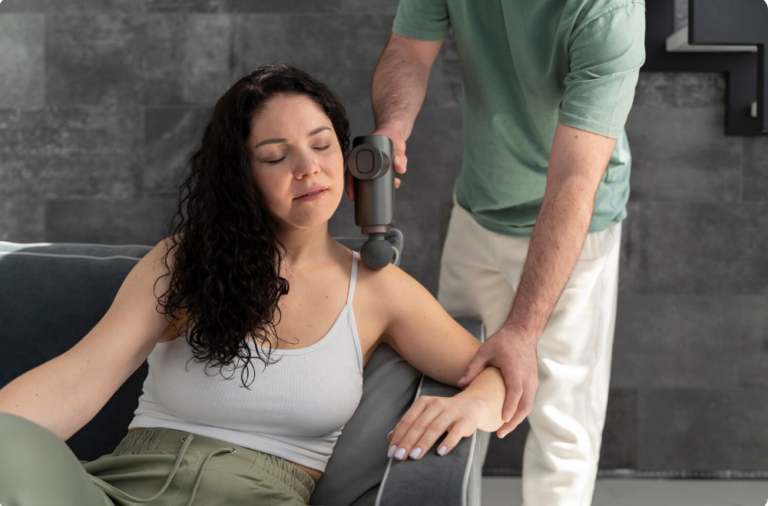7 Proven Benefits of a Motorcycle Accident Lawyer

1. Expertly Navigate Complex Motorcycle Laws
Motorcycle accident law is its own beast, and trying to figure it out on your own after a crash is a recipe for disaster. A good motorcycle accident lawyer knows the ins and outs of these specific rules, which can be way more complicated than you might think. Things like lane splitting laws, helmet requirements, and even how the road was maintained can all play a big part in who’s at fault and how much you can get. It’s not just about general traffic laws; there are specific statutes that apply only to motorcyclists. Trying to understand and apply these to your unique situation, especially when you’re dealing with injuries and insurance companies, is a huge challenge. That’s where a specialized motorcycle accident law firm in Las Vegas, comes in. They deal with this stuff every day and know how to use these laws to your advantage.
Here are a few areas where this knowledge really matters:
- Liability Determination: Understanding how motorcycle-specific laws affect fault. For example, was the rider following lane-splitting rules, or did the other driver fail to see the motorcycle due to its size?
- Damages Calculation: Knowing how to factor in motorcycle-specific damages, like the cost of replacing a specialized bike or the unique recovery challenges riders face.
- Evidence Interpretation: Recognizing how evidence like skid marks or road debris relates to motorcycle dynamics and traffic laws.
Dealing with legal complexities after an accident is tough. Having someone who understands the specific laws for motorcycle riders can make a world of difference in getting the outcome you deserve. It’s about more than just knowing the basics; it’s about applying that knowledge effectively to your case.
2. Combat Bias Against Motorcyclists
It’s a tough reality, but sometimes, even when another driver is clearly at fault, motorcyclists can face an uphill battle. Insurance companies and sometimes even juries might have preconceived notions about riders, assuming they’re reckless or somehow responsible for the crash. This bias can seriously affect how a claim is handled and the compensation you might receive.
A good lawyer knows how to fight these unfair stereotypes head-on. They don’t let assumptions dictate the outcome. Instead, they focus on the facts, using solid evidence to show exactly what happened and who was truly responsible.
Here’s how a lawyer helps level the playing field:
- Presenting Clear Evidence: They gather photos, videos, witness statements, and accident reconstruction reports to paint an accurate picture of the accident, free from prejudice.
- Explaining Motorcycle Dynamics: Accidents involving motorcycles can be complex. A lawyer can explain factors like visibility issues or how a car driver might have misjudged a motorcycle’s speed or position.
- Countering Fault Arguments: Insurance adjusters often try to shift blame. A lawyer will argue against these attempts, especially when the evidence points to the other driver’s negligence.
- Educating the Jury (if needed): If a case goes to trial, a lawyer can help a jury understand that motorcyclists have the same rights as any other driver and that stereotypes shouldn’t play a role in their decision.
The law is supposed to be impartial, but human bias can creep in. A lawyer’s job is to make sure that bias doesn’t cost you the compensation you deserve after an accident.
Remember, statistics often show that other drivers are at fault in a large percentage of multi-vehicle motorcycle crashes. A lawyer will use these facts to your advantage, ensuring your case is judged on its merits, not on unfair assumptions.
3. Maximize Your Compensation
When you’ve been in a motorcycle accident, getting the money you need to cover everything can feel like a huge challenge. An experienced lawyer knows how to get you the full amount you deserve. They understand all the different types of losses you might have, not just the obvious medical bills. This includes things like lost income, future medical care, and even the pain and suffering you’ve gone through.
Here’s a look at what goes into figuring out the right amount:
- Medical Expenses: This covers everything from ambulance rides and emergency room visits to surgeries, physical therapy, medication, and any ongoing care you’ll need. We also look at future medical needs.
- Lost Wages: If you can’t work because of your injuries, we calculate the income you’ve lost and what you’ll likely lose in the future.
- Pain and Suffering: This is about the physical pain, emotional distress, and loss of enjoyment of life you’ve experienced because of the accident.
- Property Damage: This includes the cost to repair or replace your motorcycle and any other personal belongings damaged in the crash.
Insurance companies often try to offer less than what your case is really worth. They might say you were partly to blame or that your injuries aren’t as bad as you claim. A lawyer acts as your shield against these tactics. They’ll deal with the insurance adjusters, gather all the necessary proof, and make sure your claim reflects the true impact of the accident on your life.
Insurance companies have teams of people whose job is to pay out as little as possible. You need someone on your side who is just as dedicated to getting you what you’re owed.
They’ll also look into other potential damages, like punitive damages if the other party’s actions were particularly reckless. The goal is to make sure you’re not left with financial burdens from an accident that wasn’t your fault.
4. Handle All Paperwork and Deadlines
After a motorcycle accident, the last thing you want to worry about is a mountain of paperwork and strict deadlines. It’s a lot to manage, especially when you’re trying to heal. This is where a lawyer really steps in to take the pressure off. They know all the ins and outs of what needs to be filed, when it needs to be filed, and with whom. Think about the statute of limitations – that’s the legal time limit for filing a lawsuit. If you miss it, you could lose your chance to get any compensation, no matter how strong your case is. A lawyer makes sure this never happens.
Here’s a quick look at what they handle:
- Filing Claims: Getting all the necessary claim forms submitted to the right insurance companies and government agencies.
- Meeting Deadlines: Keeping track of all court dates, filing deadlines, and other time-sensitive requirements.
- Document Management: Organizing and storing all accident-related documents, from police reports to medical bills.
- Correspondence: Managing all communication with insurance adjusters, opposing counsel, and the court.
It’s not just about filling out forms, though. It’s about making sure everything is done correctly and on time. One small mistake or missed deadline can seriously hurt your case. A lawyer’s job is to prevent that from happening, letting you focus on getting better.
The legal process after an accident is full of specific rules and timelines. Missing even one can have big consequences for your claim. A lawyer’s experience means they understand these rules and can manage all the necessary steps to protect your rights and keep your case moving forward.
5. Negotiate Skillfully With Insurance Companies
Dealing with insurance companies after a motorcycle accident can feel like a real uphill battle. They have teams of adjusters and lawyers whose whole job is to figure out how to pay you as little as possible. This is where a lawyer really shines. They know the games insurance companies play and aren’t afraid to stand up to them. Your lawyer will handle all the back-and-forth, so you don’t have to worry about saying the wrong thing or getting lowballed.
Here’s what a lawyer does during negotiations:
- Communicates directly with the insurance adjuster, keeping you out of the stressful conversations.
- Presents a clear, well-supported claim, backed by evidence and legal arguments.
- Resists pressure to accept a quick, low settlement, especially when your medical treatment isn’t finished.
- Understands the true value of your claim, including things like pain and suffering, which insurers often try to minimize.
Insurance companies often make initial settlement offers that are much lower than what your case is actually worth. They might try to get you to agree to something quickly, hoping you’ll just want the money to come fast. A lawyer knows to wait until all your medical bills are in and you have a good idea of your long-term needs before even talking about a settlement.
A good lawyer acts as a shield between you and the insurance company. They take on the burden of dealing with the adjusters and their tactics, allowing you to focus on getting better. They won’t let the insurance company take advantage of your situation.
6. Gather and Analyze Crucial Evidence
After a motorcycle crash, figuring out what actually happened is super important. This is where a motorcycle accident lawyer really shines, digging into the details that might get missed otherwise. They know what to look for, from the smallest scratch on a bike to the exact position of vehicles on the road. It’s not just about finding evidence; it’s about understanding what it all means in the context of the law and your specific situation.
Here’s a look at what goes into gathering and analyzing evidence:
- Scene Investigation: This involves visiting the accident site, taking photos and videos, and noting things like road conditions, weather, and any potential hazards. Think skid marks, debris, and traffic signal timing.
- Vehicle Examination: The lawyer will arrange for a close look at the involved vehicles. This can reveal mechanical issues, the point of impact, and how the crash unfolded.
- Witness Accounts: Talking to people who saw the accident is key. A lawyer can track down witnesses, get their statements, and figure out how reliable their memories are.
- Official Reports: Getting the police report is standard. It contains initial findings, statements from drivers and witnesses, and sometimes even a preliminary determination of fault.
- Medical Records: These documents show the extent of your injuries, which is vital for calculating damages. They also track your recovery process.
Insurance companies often try to downplay the severity of motorcycle accidents or shift blame. A lawyer’s thorough evidence collection counters these tactics by presenting a clear, factual picture of what occurred and who was responsible. This detailed approach builds a solid foundation for your claim.
Sometimes, complex issues come up that need more than just basic investigation. For example, was there a problem with the road design? Did a specific part on a vehicle fail? A lawyer can help get experts involved to look into these specialized areas, making sure all possible angles are covered.
7. Access Expert Witnesses
Sometimes, figuring out exactly what happened in a motorcycle crash needs more than just a lawyer’s opinion. That’s where expert witnesses come in. These are folks with special training and knowledge who can help explain complicated parts of your case to a judge or jury. Think about it: if a crash involved a weird mechanical failure or a really complex medical issue, a regular person might not get it. But an expert? They can break it down.
Your lawyer can bring in people like:
- Accident Reconstructionists: These specialists can figure out how the crash happened based on things like skid marks, vehicle damage, and the laws of physics. They can often pinpoint speeds and points of impact.
- Medical Professionals: Doctors or nurses can explain the severity of your injuries, the long-term effects, and the costs of future treatment. This is super important for showing the full impact of the accident on your life.
- Engineers: If a defect in a vehicle or road design played a role, an engineer can testify about that. They can explain exactly how something failed and why.
- Economists: For serious injuries, an economist might be needed to calculate lost future earnings and the total financial impact on your life.
Having these kinds of experts back up your claim makes it much stronger and harder for the other side to argue against. They provide objective, science-based information that can be really convincing. Your lawyer knows who to call and how to work with them to present the clearest picture possible for your case.
Frequently Asked Questions
What should I do right after a motorcycle accident?
First, make sure you get medical help if anyone is hurt. Then, if it’s safe, take pictures of the accident scene, your motorcycle, and any injuries. Try to get contact details from anyone who saw what happened. It’s also a good idea to avoid talking too much with insurance companies right away until you’ve spoken with a lawyer.
Why are motorcycle accidents different from car accidents?
Motorcyclists don’t have the same protection as people in cars, like seatbelts or airbags. This often means injuries are much more serious. Also, sadly, some people unfairly assume motorcyclists are always at fault, which a lawyer can help fight against.
Can a lawyer really help me get more money?
Yes! Lawyers know how to figure out all the costs you’ve faced, like medical bills, time off work, and even pain and suffering. They’re also good at dealing with insurance companies, who might try to offer you less money than you deserve. A lawyer makes sure you get what’s fair.
What if the insurance company offers me a settlement?
Insurance companies want to pay out as little as possible. They might offer you a quick settlement that sounds good, but it’s often less than what your case is really worth. A lawyer can review the offer and negotiate for a better amount, making sure all your current and future needs are covered.
Do I need a lawyer if the accident wasn’t my fault?
Even if you weren’t at fault, the other driver’s insurance company might still try to blame you or offer a low settlement. A lawyer acts as your protector, gathering proof and dealing with the insurance company so you don’t have to worry about being taken advantage of.
How much does a motorcycle accident lawyer cost?
Many motorcycle accident lawyers work on what’s called a ‘contingency fee’ basis. This means you don’t pay them anything up front. They only get paid if they win your case, and their fee comes out of the money you receive. This makes hiring a lawyer affordable for most people.





